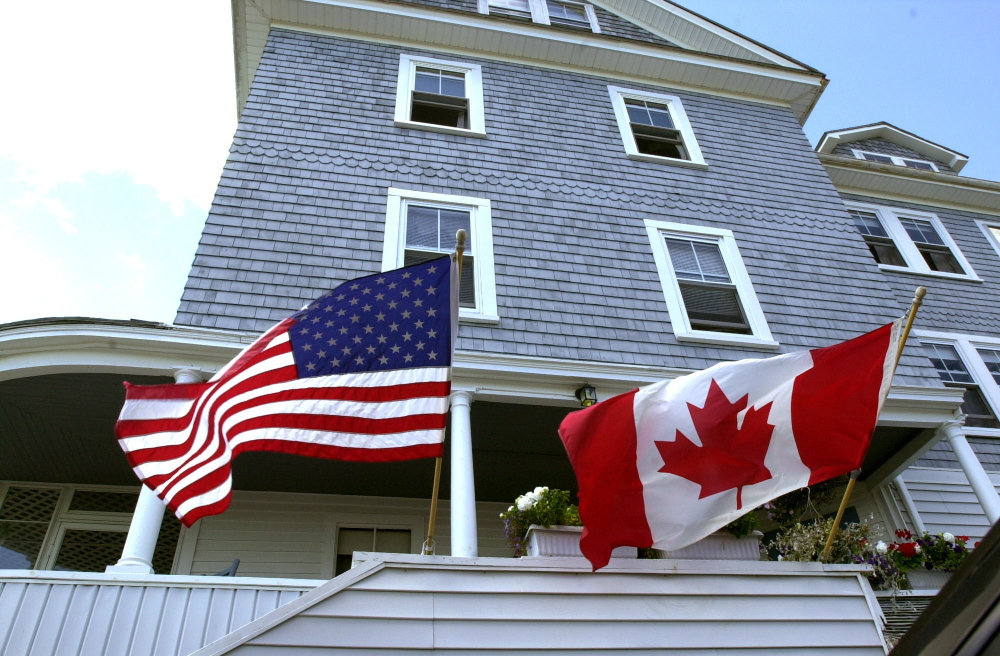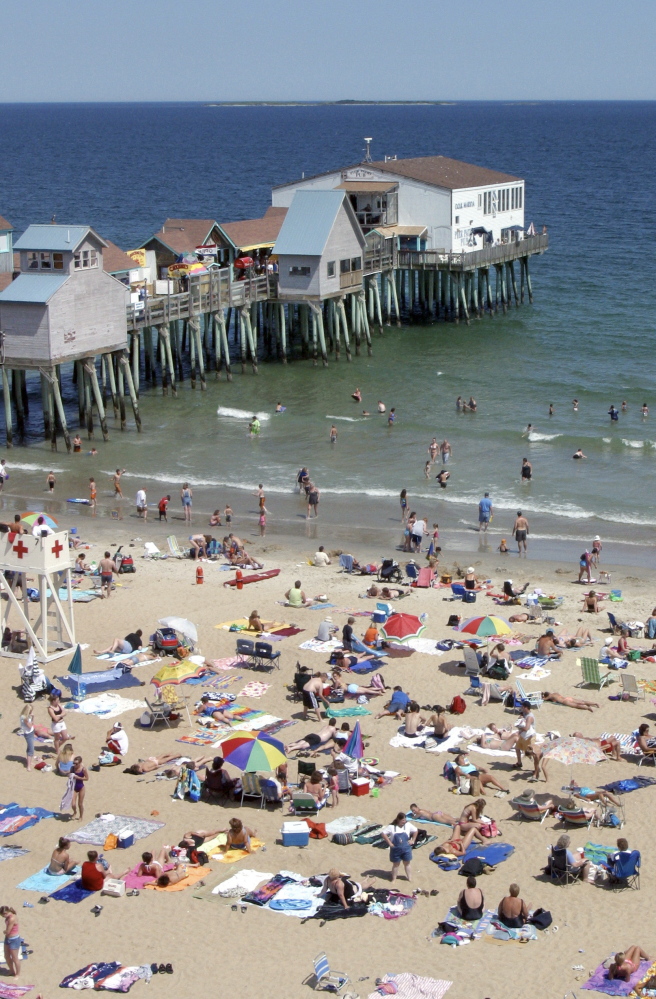Rhonda Beals of Halifax, Nova Scotia, comes to Maine every year to shop at the malls and big-box stores in Bangor and the Portland area. The Christmas Tree Shop in South Portland is the highlight of the 29-year-old’s trip.
But this year, with the Canadian dollar expected by some experts to fall to 85 cents against the U.S. dollar, Beals said she may cancel her Maine vacation.
“The dollar will be a factor where it wasn’t before,” she said. “Everything is more expensive. When you look at the value of the dollar, you have already lost money before you leave home and cross the border.”
The decline of the Canadian dollar, known as the loonie, could hurt tourism in Maine, which draws four million to five million Canadian visitors a year. Businesses in Old Orchard Beach are particularly vulnerable to swings in currency values because Canadians make up half of the town’s tourists during some weeks in the summer.
The exchange rate between the Canadian and U.S. dollars has shifted dramatically in the past five months in favor of the dollar, a trend that financial analysts expect will continue. They have cited the United States’ faster recovery from the global recession, and ongoing actions by the U.S. Federal Reserve to stimulate economic growth.
A loonie now is worth 90 U.S. cents; by midsummer, that figure is expected to be even lower, analysts have said.
Tourism isn’t the only industry in Maine that stands to be affected. Canada is Maine’s largest trade partner, importing $1.3 billion worth of Maine exports in 2013. More than half of all Maine exports go to Canada, and Maine imports $2 billion worth of goods from Canada annually.
A lower Canadian dollar creates winners and losers on both sides of the border, said Janine Bisaillon-Cary, president of the Maine International Trade Center. A cheaper loonie is good for Canadian exporters and Maine importers, because it makes the products cheaper in the U.S., she said.
The reverse is also true. Maine businesses that export goods to Canada, along with Canadian importers, could see consumer demand for their products decline because of higher prices.
Still, trade between Maine and Canada has proven over time to be fairly resilient despite swings in currency values, said Jeffrey Bennett, director of the trade center’s Canada desk.
“Our economies are so integrated on many levels that fluctuations in currency rates between the loonie and greenback don’t often play as big a role in trade as one might think,” he said.
The biggest impact, Bennett said, will be on Maine’s tourism industry, because people have choices about where to travel and they go where they can get the most for their money.
For several years, Maine was a good deal for Canadians. For much of 2011 and 2012, the Canadian dollar had more buying power than the U.S. dollar. The loonie’s value peaked in the summer of 2011, when one Canadian dollar was worth $1.05 in U.S. currency.
Residents of New Brunswick, Nova Scotia, Quebec, Prince Edward Island and even Newfoundland have been driving to Maine to shop. Canadian bus companies have offered package tours designed just for shoppers.
It’s too early to assess the impact of the latest currency swing because Canadians generally wait for warmer weather to shop in Maine, said James Gerety, general manager at the Bangor Mall, within a two-hour drive from the Canadian border.
“I can’t say we aren’t concerned,” Gerety said. “Ten cents on a dollar is something to consider.”
The Canadian dollar, which in the early 2000s fell to as low as 62 cents against the U.S. dollar, increased in value during the global recession when it became apparent that Canada’s economy was healthier than that of the U.S., said Craig Alexander, senior vice president and chief economist for TD Bank Group.
But the U.S. is now outperforming most of the world’s industrial nations, he said, and Canada’s economy is no longer a standout. Also, the U.S. Federal Reserve is now cutting back its purchases of short-term government bonds, effectively tightening the supply of U.S. dollars and making them more valuable.
Alexander said he believes the loonie will fall to 85 cents per U.S. dollar this summer.
That means Canadians who come to Maine with $1,000 Canadian will get only $850 in U.S. dollars when they exchange their money at a bank.
Because Maine has the closest seashore, Quebec residents have made Old Orchard Beach one of their top destinations in the summer for many decades. Pierre Janelle, owner of The Edgewater hotel there, said he has yet to notice any impact from the Canadian dollar’s devaluation. Reservations are on par with last year’s, he said.
Janelle said he doesn’t believe the exchange rate will cause Canadians to cancel their summer plans to visit Maine. “They have had a bad winter just like us and are looking forward to spring and summer,” he said.
TD Bank’s Alexander, a Canadian based in Toronto, agrees – with one caveat.
“I think tourists are still going to go to Maine,” he said, “but they won’t spend as much money as they normally do.”
Tom Bell can be contacted at 791-6369 or at:
tbell@pressherald.com
Send questions/comments to the editors.





Success. Please wait for the page to reload. If the page does not reload within 5 seconds, please refresh the page.
Enter your email and password to access comments.
Hi, to comment on stories you must . This profile is in addition to your subscription and website login.
Already have a commenting profile? .
Invalid username/password.
Please check your email to confirm and complete your registration.
Only subscribers are eligible to post comments. Please subscribe or login first for digital access. Here’s why.
Use the form below to reset your password. When you've submitted your account email, we will send an email with a reset code.